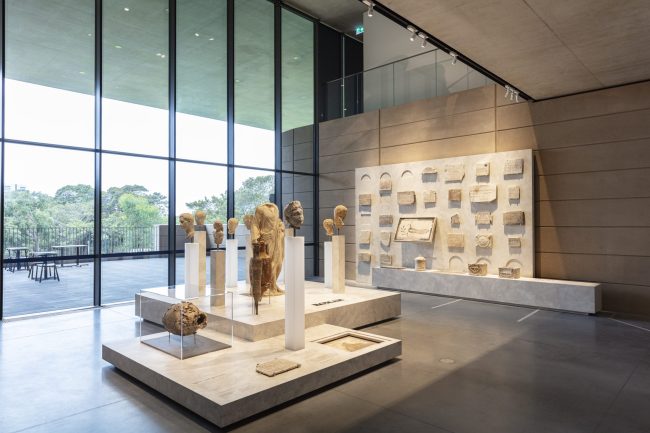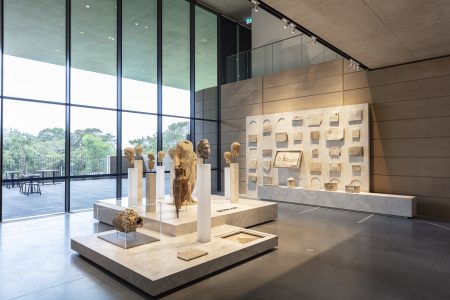
Arts Wednesday continues our exploration of the Nicholson Collection at the Universty of Sydney’s Chau Chak Wing Museum. Once again we are fortunate enough to meet with Archeologist and Assistant Curator, Candace Richards. This time Candace takes us on an amazing journey through the Museum’s ancient Italian Collection.
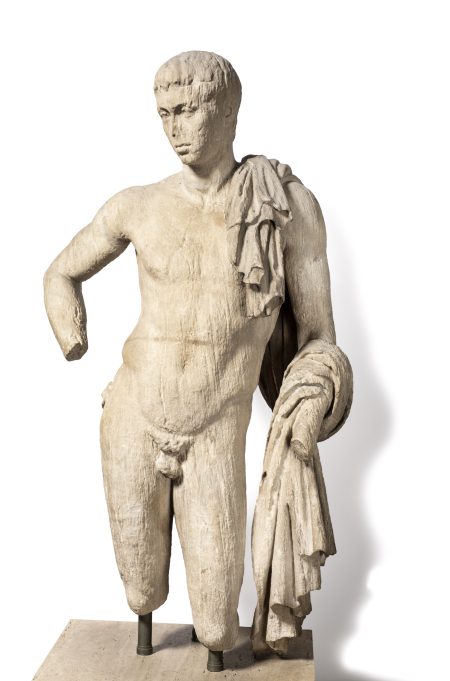
1st century BC – 1st century AD
Smyrna, Anatolia
The collection dates back to c.1000 B.C., beginning with the Etruscans, moving through the different eras: The Kings and Kingdom, The Republic, and then Empire, up to c.450 A.D. The history is mind boggling, the stories riveting, the artefacts range from marble statuary, funerary urns, bronzes, pottery to everyday objects such as tools, vessels and figurines.
Candace discusses not only the objects in this unrivalled collection but the foundational myths and stories of Ancient Rome – we love to believe these romantic stories from a time in history are fact, perhaps they are – as well as the ever-changing politics, intrigues and trading economies of the epoch. As the Empire expanded, we see objects from the Roman Colonies that stretched to both ends of the Mediterranean and beyond: Carthage and North Africa, Sicily and Sardinia, Thrace, Athens, the Levantine lands, Anatolia, Pontus and the Eastern lands, Gaul and the the territories to the west, not to mention the many regions of Italy. Rome was the most powerful Empire of all time to date.
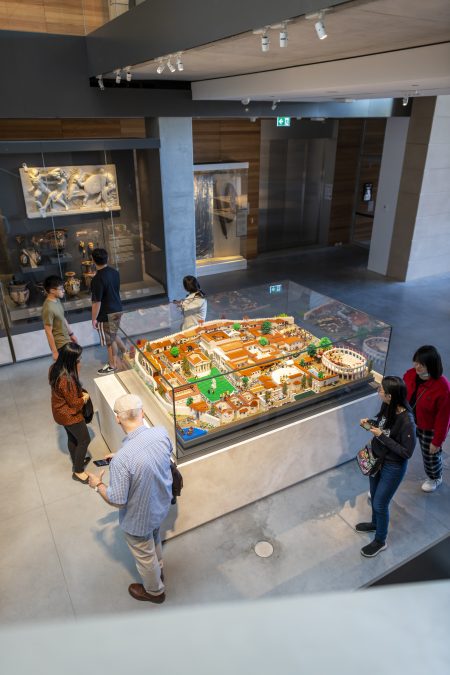
One of the most popular exhibits is a detailed model of Pompeii made from Lego Bricks. Not only are children fascinated (try getting in between them on a busy day) but visitors of all ages marvel at the detail and work that’s gone into its wonderful creation.
The fascinating history of the collection begins with the story of how Charles Nicholson went about acquiring the collection in the late 19th Century, specifically for teaching purposes, and the ongoing process of adding to the collection through acquisitions, bequeaths and also through current archeological digs.
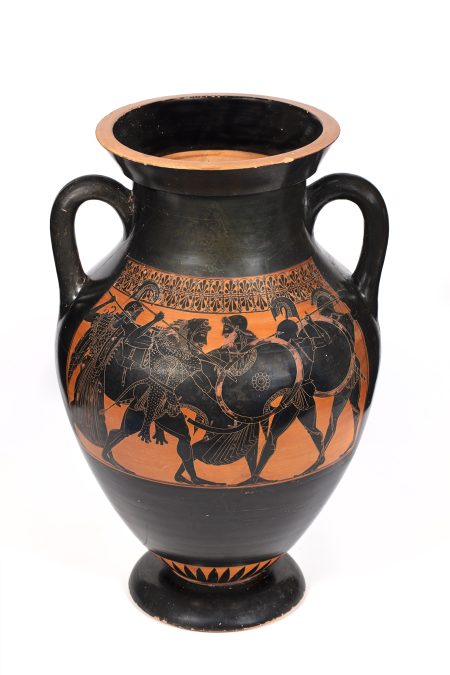
Athens, Greece 525-500 BC
But one of the outstanding features of the Chau Chak Wing Museum is the curatorial work. The curators often juxtapose seemingly disparate objects from the Museum’s three collections to highlight connections between archeological artefacts, objects from the natural world and modern art, and in so doing transcend time, place and history. When you visit the museum you must check out the Heracles exhibition which equates the Greek super-hero with giant-sized bugs.
Arts Wednesday 22 March 10.30
89.7fm
DAB+
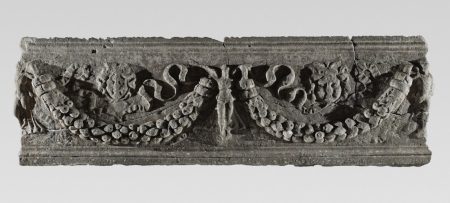
2nd to early 3rd century AD
